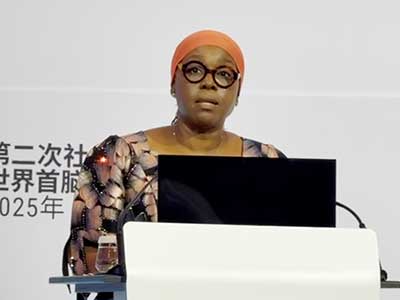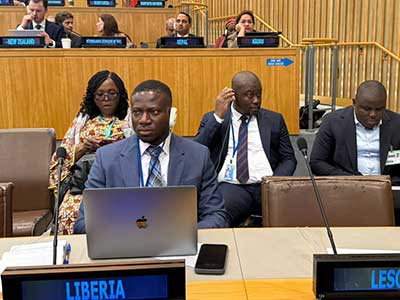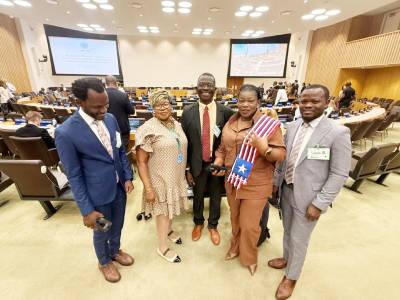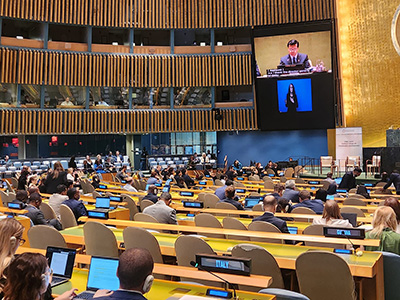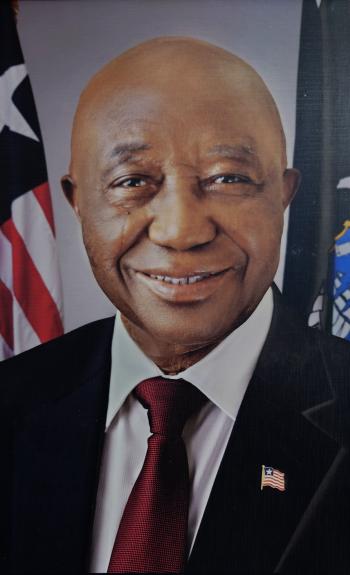Mr. President, Excellencies!
1. We thank the Council for convening this Open Debate on the theme: “Investment in people to enhance resilience against complex situations"; within the context of “Peacebuilding and sustaining Peace”.
- Instability and conflicts continue to generate and exacerbate poverty and institutional fragility across the world. Undoubtedly, key elements which are necessary conditions for the sustenance of peace and the promotion of peacebuilding priorities across post conflict societies include effective institutions, and an empowered population. Hence, my delegation believes that the theme for the Open Debate is appropriate as it further elevates the need for strengthening efforts in strides towards peacebuilding and the sustenance of peace through investment in people and building resilient and effective institutions.
- To these ends, my delegation wishes to highlight the following:
- The need for targeted investments in the most vulnerable, including women and youth. My delegation further believes that investing in people, particularly, the most vulnerable, women and youth; in various forms including advancing their socio-economic development, protecting their human rights and human security, and empowering them to be agents of positive change in their respective societies, not only enhances countries’ abilities in the prevention, and mitigation of conflicts; as well as recovery and peacebuilding processes; but also ensures inclusivity.
- Ensure the provision of technical and other support to facilitate building resilience of institutions of conflict affected and post conflict societies including to strengthen economic, democratic, social, and governance institutions, to ensure transparency, accountability, and efficiency.
- On the national level, our National Development Plan the Pro-poor Agenda for Prosperity and Development (PAPD) prioritizes among others, the empowerment of women and girls; including taking actions to reform our legal system to address inequalities; and providing decent jobs and livelihoods, to reduce poverty by economically empowering the youth so they too can become self-employed to contribute to the growth and development of the country.
For example, in our quest to “Leave no one behind” and building an inclusive society, the Government with support of the United Nations in Liberia, on June 30, 2022, launched a National Fund Drive for the rehabilitation and empowerment of at-risk youth. The initiative is geared towards rehabilitating, empowering and reintegration of At-Risk Youth into their communities as healthy, productive, and engaged citizens.
- To these ends, I wish to also highlight the Peace building Commission’s (PBC) engagements in Liberia in support of our peacebuilding initiatives, including its support of our national programs to empower women and youth; and its engagements with key government institutions to strengthen resilience, coordination and service delivery, social cohesion, integration, and national reconciliation; as well asefforts to ensure the full, equal and meaningful participation of women in peacebuilding and political processes.
- In the same vein, the Peace building Fund (PBF) is also supporting the Government’s initiatives with a view to contributing to a more peaceful electoral environment before, during, and after the forthcoming 2023 elections; strengthen electoral violence prevention, and strengthening the policy and institutional environment for a more inclusive and effective Early Warning and Response (EWER) mechanism, including by mainstreaming of human rights, gender, and youth-based approaches.
- In conclusion, Excellencies, my delegation reiterates its thanks for the convening of this Open Debate, and submits that investing in people to enhance resilience against complex situations as well as building resilient and effective institutions, can be better achieved through concerted engagements, pursuing a multi-stakeholders’ approach; including government functionaries, United Nations Country Teams, multilateral financial institutions; and non-state actors including the private sector.
I thank You!


